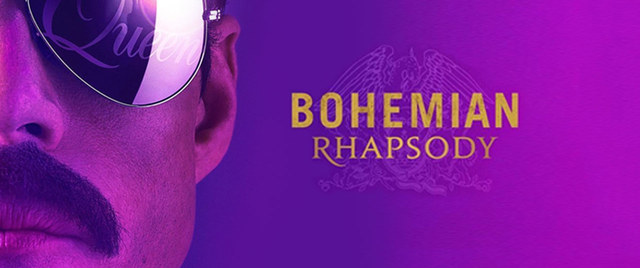Bohemian Rhapsody: a biopic for the ages
Photo credit: Imdb
November 23, 2018
How many more ‘Galileos’ could one possibly want? Filled with hilarious zingers, a timeless soundtrack and the tear-jerking reality of life, “Bohemian Rhapsody” brilliantly tells the story of the iconic rock group, ‘Queen’ and their frontman, Freddie Mercury (Rami Malek).
The first teaser trailer kickstarted the hype for “Bohemian Rhapsody” in May of 2018, creating high expectations and leaving many critics wondering if the movie would succeed. Within the first ten minutes of the film, however, any concerns one may have are sure to disappear.
The movie opens with Mercury (Malek) joining the college-aged rock band currently consisting of Roger Taylor (Ben Hardy), Brian May (Gwilym Lee) and John Deacon (Joseph Mazzello). Mercury’s flirtatious humor is immediately put to use and it introduces the audience to his colorful character.
Following a shaky first performance by the group, we learn something crucial about Mercury: nothing is going to stand in his way. With his unbreakable ‘born to be a star’ attitude, he manages to inspire the people he interacts with throughout the film, and graces us all with small boosts in our own self-esteems with his contagious attitude.
During performance scenes, the cast was able to capture the real energy and emotion of a Queen concert. The soundtrack consisting of Queen’s live performances and Malek’s incorporation of classic moves create an atmosphere in the theater that left us with goosebumps made it all the more exciting to watch.
However, the movie was much more than a two-hour ‘Queen’ jam session with a few chuckles. The audience is also exposed to a few of the harsh circumstances Mercury endured, one such case being his AIDS diagnosis. As many know, Mercury’s diagnosis is one of the early public cases of the disease and his death shocked the world in 1991. As the climax of the film nears, we begin to see allusions to his illness, resulting in a heart-wrenching scene where he learns he’s contracted the incurable sickness, drawing strong feelings of sympathy for Mercury and leaving us wondering, “what comes next?”
After these events transpired, he leaves his temporary solo career to rejoin Queen and make a decision that went down in history as one of the most important musical performances ever: the Live Aid benefit concert.
Coming off from a brief solo career, we see Mercury and the band struggling to get back into the swing of things with Live Aid only two weeks away, and until the moment that Mercury steps on the stage, we held our breath. Regardless of knowing the outcome or not, we were all praying that the sun had broken through the clouds and that Queen’s ‘big moment’ of the film was going to pull through.
And pull through it does. With Malek’s remarkable interpretation of Mercury, he’s able to combine a turning point in music history with himself and his own style, all the while maintaining the energetic nature of the rock star.
Ending the film at the concert rather than Mercury’s death symbolizes that there’s no real end to his story, which was a very strong belief of Mercury himself.
“Bohemian Rhapsody” isn’t just the story of an old rock band, it’s about keeping a legacy alive. Queen’s impact on the world revolutionized the way we think of music by mixing sounds and genres in a way that had never been heard before. Their music broke free from the chains of radio regulations, and created an entirely new mindset about music.
As one of the most memorable frontmen of rock, Mercury’s story needed to be told in a way that will allow him to be everything but a memory, and “Bohemian Rhapsody” is an amazing opportunity for that to happen.












